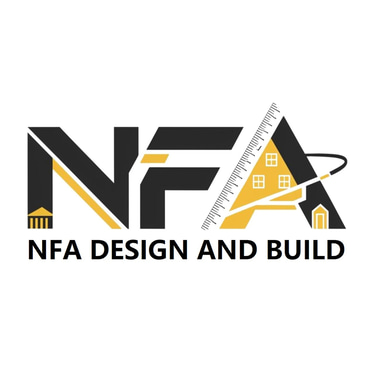Common Construction Disputes That Can Arise on a Building Project
Surrey
5/14/20253 min read


Construction projects, whether loft conversions, home extensions, or full-scale renovations, involve multiple parties and complex processes. As a result, disputes are not uncommon and can significantly impact project timelines, costs, and relationships. Understanding the most common construction disputes-and how to address them-can help homeowners and contractors navigate projects smoothly and avoid costly delays.
1. Delays and Scheduling Conflicts
One of the most frequent sources of construction disputes is project delays. Delays can arise from unforeseen circumstances such as adverse weather, supply chain issues, or changes in project scope. Sometimes, disagreements between contractors, subcontractors, and clients about project timelines can further exacerbate the issue. These delays often lead to additional costs and strained relationships among stakeholders.
How to Avoid:
Set a clear project timeline from the outset.
Document any changes to the schedule.
Use transparent communication and regular progress meetings.
2. Payment and Budget Issues
Payment disputes are among the most common in building projects. Issues may include unpaid invoices, delayed payments, or disagreements over budget allocations. These disputes can halt construction, affect cash flow, and even result in legal action if not resolved promptly38.
How to Avoid:
Establish transparent payment terms in the contract.
Maintain clear financial records.
Use milestone-based payments to ensure steady progress.
3. Quality of Work and Materials
Disagreements about the quality of workmanship or materials used can lead to significant disputes. Clients may feel that the finished work does not meet the agreed standards, or that subpar materials have been used, resulting in additional costs for rework or replacement.
How to Avoid:
Specify quality standards and approved materials in the contract.
Conduct regular site inspections and quality checks.
Maintain open communication about any changes or substitutions.
4. Design and Scope Changes
Changes to the original design or project scope are a major driver of construction disputes. These can occur when clients request modifications after work has begun, or when design documents are incomplete or incorrect. Such changes often lead to disagreements over costs, timelines, and responsibilities.
How to Avoid:
Finalize design plans before construction starts.
Document any requested changes and agree on revised costs and timelines.
Ensure all parties understand the scope of work.
5. Contractor and Subcontractor Disagreements
Disputes between contractors and subcontractors often arise over roles, responsibilities, or payment terms. Misunderstandings regarding contractual obligations or poor communication can escalate these issues, causing project delays and potential legal battles38.
How to Avoid:
Clearly define roles and responsibilities in the contract.
Use digital tools for documentation and communication.
Hold regular coordination meetings.
6. Resource Allocation Issues
Resource allocation disputes involve disagreements over the distribution of materials, labor, or time. Delays in material delivery or labor shortages can disrupt schedules and lead to conflict over project priorities3.
How to Avoid:
Regularly assess project resource needs.
Use risk management tools to anticipate shortages.
Reassign resources as needed through collaborative meetings.
7. Safety and Regulatory Compliance
Failing to meet safety standards or regulatory requirements can result in work stoppages, fines, or legal disputes. These issues often arise when safety protocols are unclear or regulatory inspections uncover deficiencies34.
How to Avoid:
Establish clear safety protocols and compliance guidelines from the start.
Assign a site safety officer or compliance manager.
Conduct regular safety audits.
8. Environmental Impact Disputes
As sustainability becomes increasingly important, disputes over environmental assessments, waste disposal, or compliance with environmental laws are on the rise. These conflicts can delay projects and increase costs if not managed proactively3.
How to Avoid:
Conduct thorough environmental assessments at the project’s inception.
Collaborate with environmental experts.
Set clear guidelines for sustainable practices
9. Communication Breakdowns
Poor communication is a root cause of many construction disputes. Misunderstandings, unclear instructions, or lack of updates can lead to mistakes, rework, and conflict among project participants6.
How to Avoid:
Encourage open and regular communication among all parties.
Use project management software to track progress and share updates.
Document all decisions and agreements.
How to Resolve Construction Disputes
When disputes do arise, it’s essential to resolve them efficiently to keep your project on track. Here are the most common dispute resolution methods:
Negotiation: The first step, where parties try to resolve issues directly and amicably.
Mediation: Involves a neutral third party to facilitate discussions and help reach a mutually acceptable solution.
Arbitration: A neutral arbitrator hears both sides and makes a binding decision, often faster and more private than litigation.
Litigation: The last resort, involving court proceedings. It is usually time-consuming and costly, so it’s best reserved for the most serious disputes.
Why Choose NFA Design & Build for Your Project?
At NFA Design & Build, we understand the complexities of construction projects and the importance of preventing disputes before they arise. Our experienced team specializes in loft conversions, home extensions, and renovations across London and the surrounding areas. We handle every aspect of your project, from planning permission and design to construction and compliance, ensuring clear communication and transparent processes every step of the way.
If you’re planning a home extension or loft conversion and want to avoid common construction disputes, contact us today for a free quote. Let our trusted experts guide you through a smooth and successful building project.
Conclusion
Construction disputes can disrupt even the best-planned projects. By understanding the common causes and implementing proactive strategies, homeowners and contractors can minimize conflict and ensure a successful outcome. Trust NFA Design & Build to deliver expert guidance, transparent communication, and high-quality results for your next building project.
